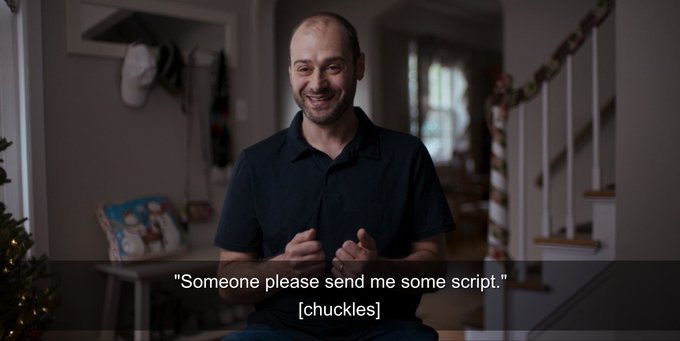
0:01-3:41: Greetings! Despite sounding otherwise, Jeff is actually pretty upbeat…about everything except for comics. And, Graeme, despite sounding like his usual chipper self, had a hell of a week but sounds like he’s weirdly upbeat. Podcast pull-and-push machine, go!! Discussed: the terror that is the end of year “Best of” lists, especially in a year where buzz books don’t have physical cons where they get the aforementioned buzz.

3:41-6:22: That said, Graeme has started reading a book he strongly suggests is going to make the list: Paul At Home by Michel Rabagliati and Helge Dascher. It’s an excellently, subtly devastating read.
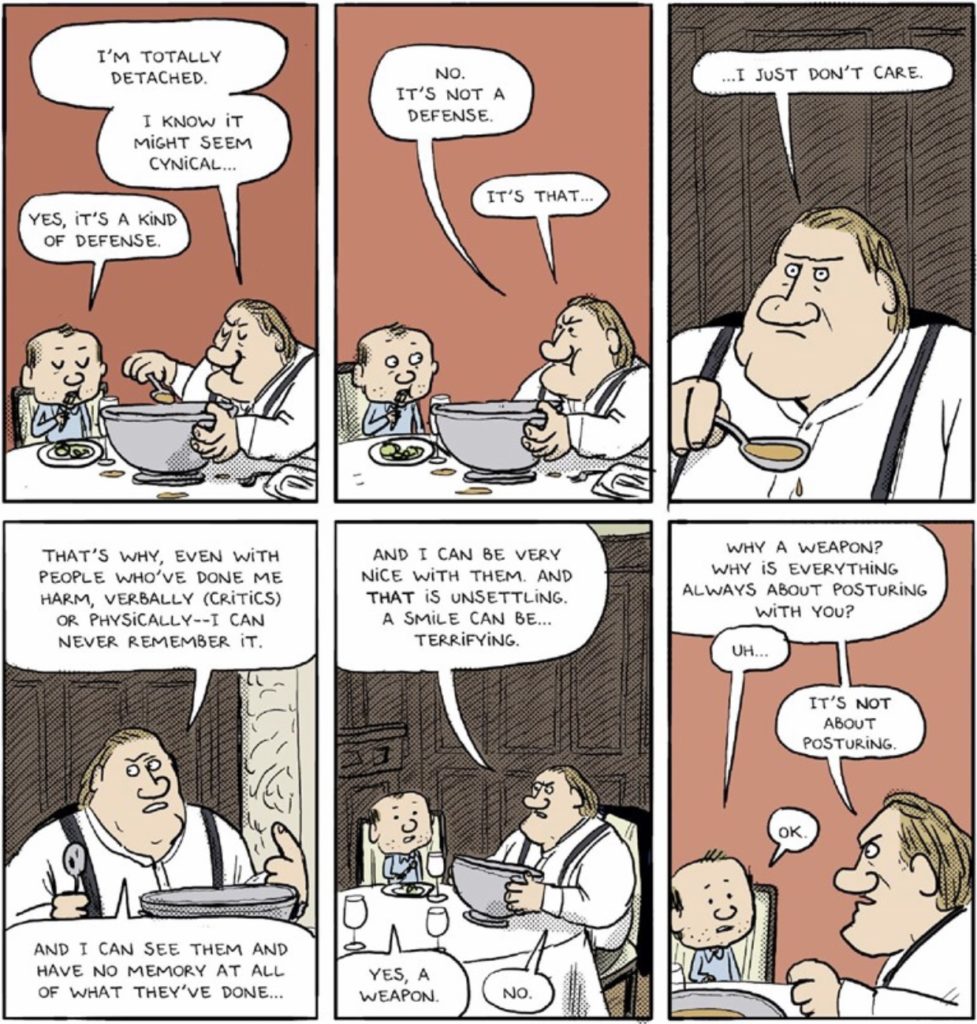
6:22-23:27: One of the things Graeme likes about Paul at Home is that it’s not comfort reading. Is Jeff restless because it’s been too much comfort reading lately? And this leads into a quick overview of some of the stuff Jeff’s been reading: a third (or maybe fourth) reread of Fujita’s Wotakoi: Love is Hard for Otaku; A Side Character’s Love Story by Akane Tamura; Something Like Summer – The Comic: Volume One: Summer by Jay Bell and Cassy Fallon; the first Carthago omnibus by Christophe Bec, Eric Henninot, Milan Jovanovic; and the delightful Gérard – Five Years with Depardieu by Mathieu Sapin.
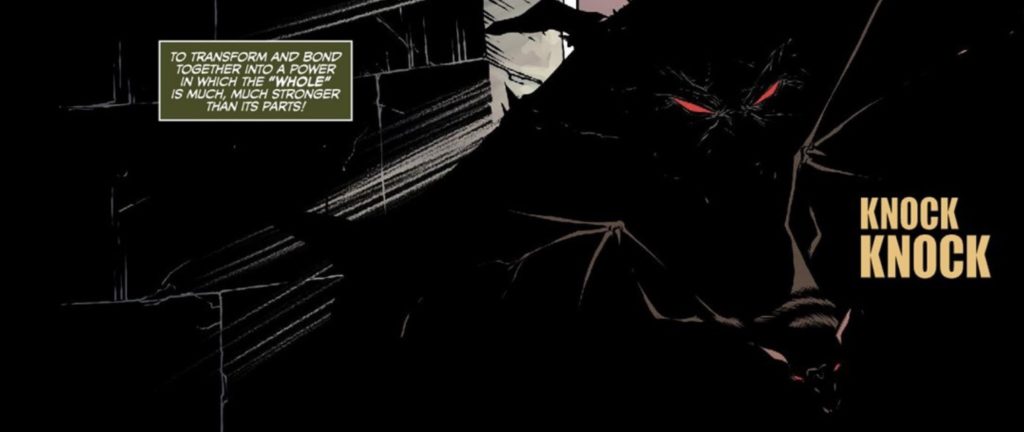
23:27-42:24: Jeff slows his roll a bit so he can complain at length about Spawn #311 by Todd McFarlane and Carlo Barberi. Spawn is an eternal source of frustration for Jeff, which he unpacks here, and makes for a good opener to talk about Graeme’s reread of the excellent Poisoned Chalice (the Extremely Long and Incredibly Complex Story of Marvelman (and Miracleman) by Pádraig Ó Méalóid and the lawsuits between Neil Gaiman and Todd McFarlane. And as a bonus, you get Graeme and Jeff also comparing and contrasting McFarlane and Spawn with Erik Larsen and Savage Dragon.
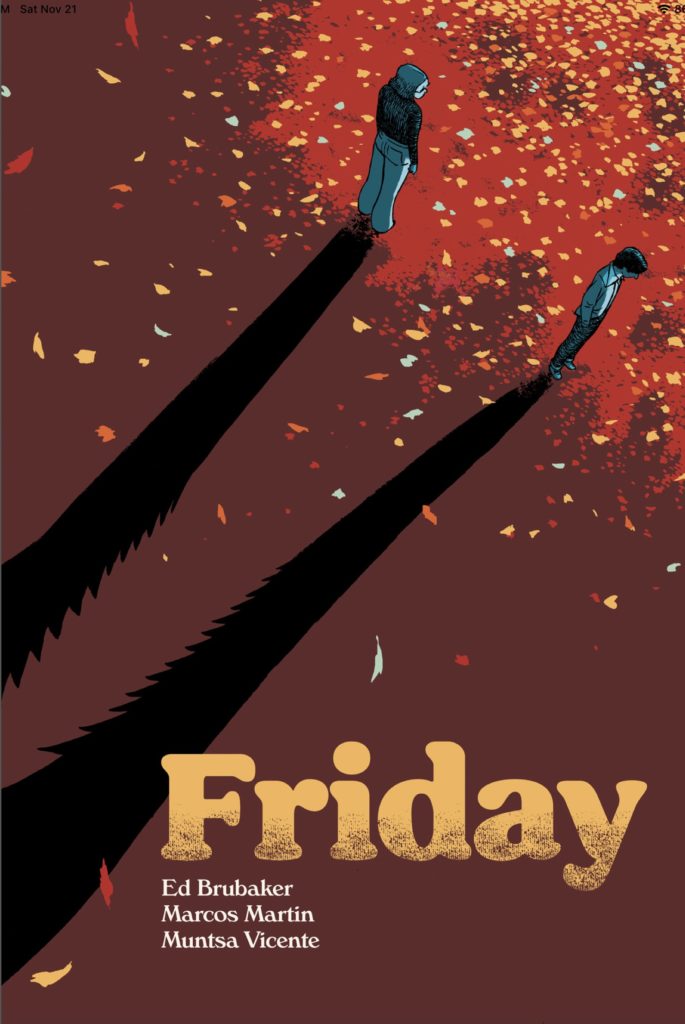
42:24-46:05: The second issue of Friday by Ed Brubaker, Marcos Martin and Muntsa Vicente came out on Panel Syndicate! Is that exclamation point well-chosen? Or does the second issue suffer from being five months later than the first?
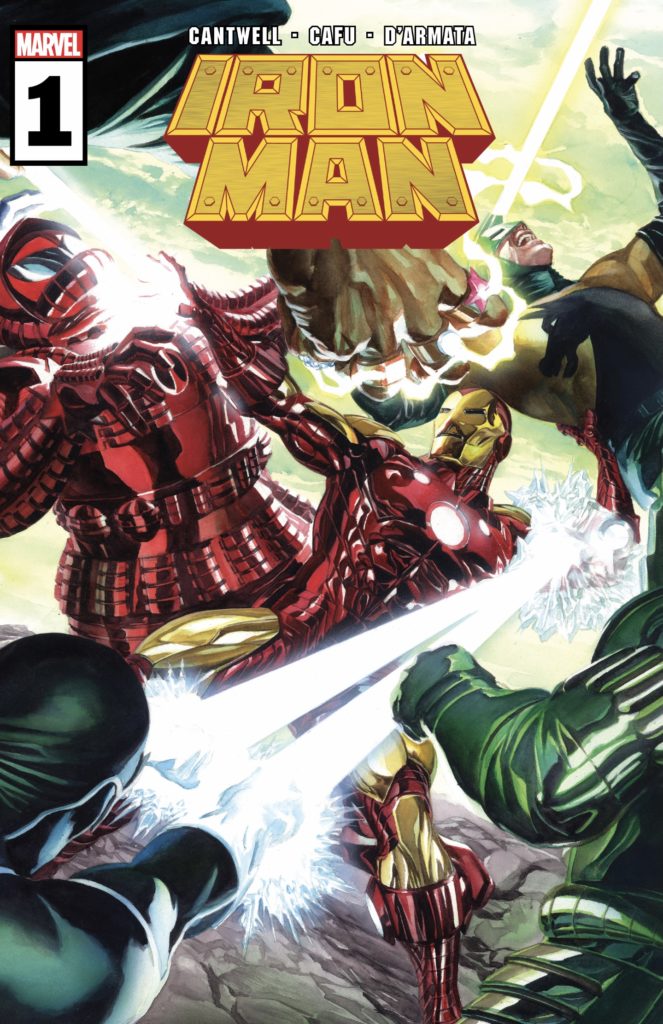
46:05-58:22: News! Well…maybe? But first (and most importantly) Jeff gets to follow in Graeme’s footsteps and do something he’s always wa(nted to do—talk vaguely about something he knows that he can’t tell you about! (It felt great.) And as a result of that undisclosed thing, he received two Marvel digital comics he talks about quickly here: Champions: Outlawed #1 by Eve Ewing and Simone Di Meo; and Iron Man #1 (2020) by Christopher Cantwell, Cafu, and Frank D’Armata. We spend a surprising amount of time talking about Iron Man because we both have a surprising number of feels about that issue (spoilers: the feels I’m talking is disappointment.)
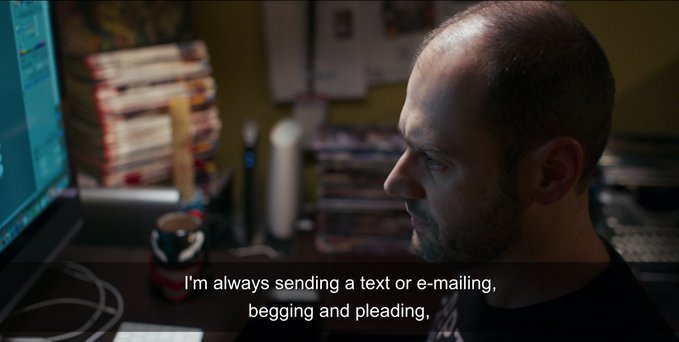
58:22-1:06:38: Okay, then: news! Kinda. I mean, is it news if a tree falls in the woods and nobody hears it? The answer is yes, if the tree is “Dan Slott” and “falls in the woods” is shorthand for “blows his fucking deadlines” and “nobody hears it” really means “is pretty much the subject of an entire documentary running on Disney+!” It’s quite a thing, y’all. Quite a thing.
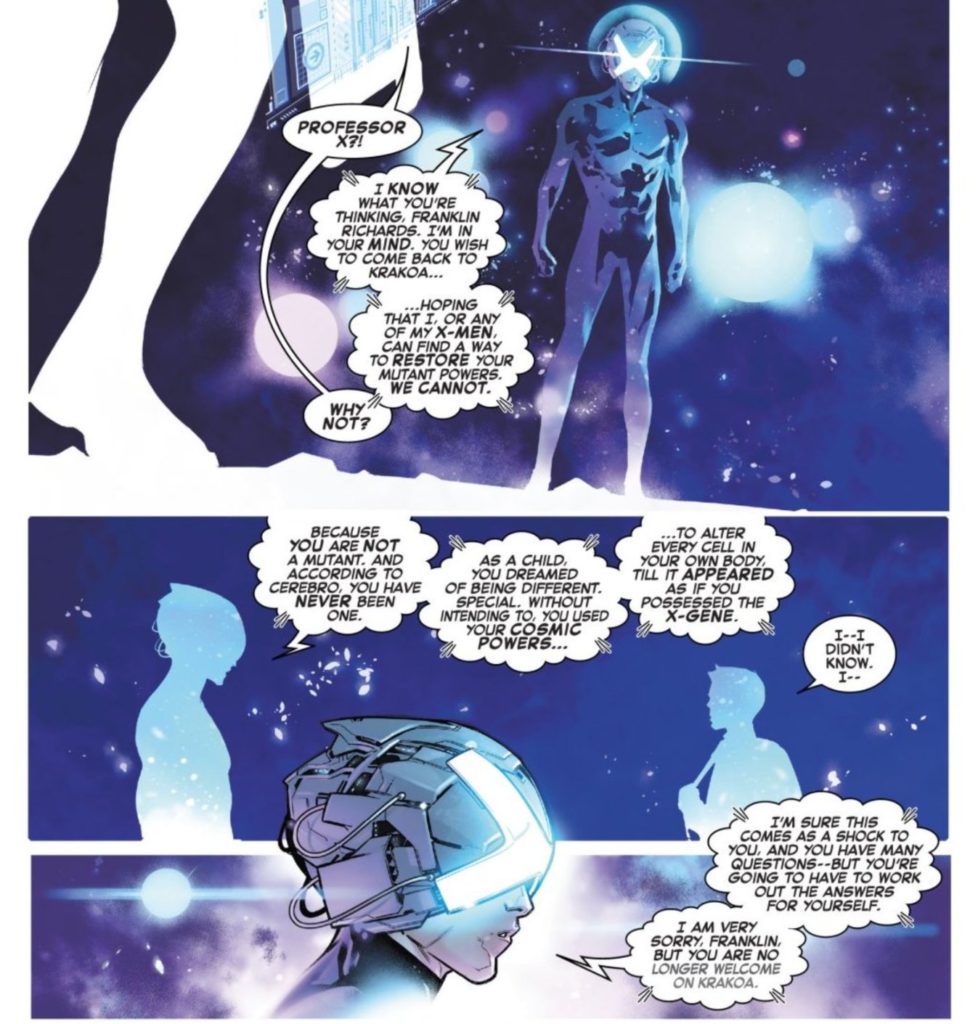
1:06:38-1:12:45: Speaking of quite a thing, as a bonus amount of Slott-related eyerolling, we talk about the recent reveal in Fantastic Four #26 that Franklin was apparently…never a mutant? Huh.
1:12:45-1:15:45: Heck of a week for HBO Max. DMZ got a full series order! (Didn’t it already?) Terence Winter ankles The Batman spinoff TV show! (I mean…what the hell was he doing there anyway, really?) And the big one: Wonder Woman 1984 simultaneously hits theaters *and* HBO Max December 25th! (for no extra charge for HBO Max subscribers.) 1:15:45-:1:37:48 And related to various HBO Max’s kerfluffles, maybe, kinda: Brian Hibbs has a helluva takedown of DC’s current practices over at The Beat with an amazing opener (Hibbs almost dying) and an amazing closer (Hibbs predicting DC will no longer be publishing periodical comics by 2022). We discuss because, really, how can we not? Also discussed: the layoffs at DC and Warner Media; and more.
1:37:48-2:06:12: More news in a similar vein, at least as far as superhero comics’ uber-uber masters are concerned: Disney is not paying Alan Dean Foster royalties. And that’s a *very* bad thing that could lead to very, very, *very* bad things. Also discussed: DC’s page rate; Marvel’s stealth layoffs; Marvel Mech Strike (which although he didn’t say so, Jeff heard as Marvel Neck Fight); Marvel Method as a lifestyle brand; DC Universe’s terrible reality shows versus Marvel’s terrible reality Youtube shows; and more.
2:06:12-2:19:37: Jeff’s frank admission that he will probably be watching Wonder Woman 1984 on HBO Max on Christmas Eve but there is not way in hell he’s going to see it in the theater leads to something a little more frank and troubling—maybe he’s done with theaters? I mean, you know, chalk it up to COVID-crazy so take it with a very large grain of salt but….maybe?
2:19:37-2:24:31: Did you know Three Jokers is already on Hoopla? I mean, it make sense since DC rushed that trade out of the gate pronto but….wow.
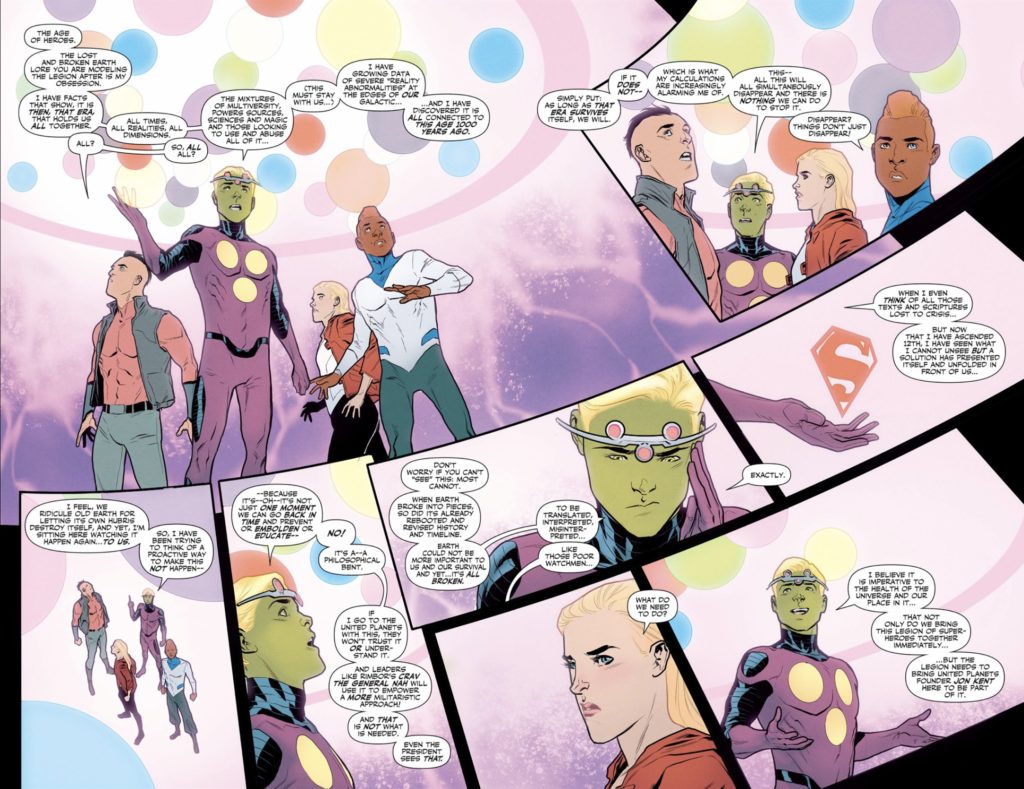
2:24:31-2:31:09: We are aware we need to wrap up so, sadly we’re not going to get a chance to get in a fight about Bendis’s Legion of Superheroes! But here’s a few things Graeme wanted to say about it anyway. (Considering Graeme compares Bendis’s LSH to Gilmore Girls, I think Jeff would’ve gotten slaughtered.)
2:31:09-end: Closing comments! Look for us on Stitcher!Itunes!Instagram! Twitter together and separately: Graeme and Jeff! Tumblr, and on Patreon where a wonderful group of people make this all possible, including Dominic L. Franco, and Empress Audrey, Queen of the Galaxy, to whom we are especially grateful for her continuing support of this podcast. (Also, don’t forget about Spotify!)
Next week: Skip week! If you are American, have a good Thanksgiving weekend. If you are not American, you probably feel like you dodged a geopolitical bullet? Either way, join us in the first week of December for another Wait, What?!


for all your cutting and pasting needs, come to Paul’s Boutique:
https://theworkingdraft.com/media/podcasts4/WaitWhat307.mp3
I had the weirdest damn bit of synchronicity with this episode. I was listening while low-key taking part in a forum discussion about how well or poorly artists do at making money from their work. I mentioned Clive Barker having needed to continue making ends meet with prostitution well after becoming one of the biggest names in horror. This was news to some others, so I hunted up a link for it, and put it in. As I was clicking the Post button, Graeme had that line about Vince Colletta’s notional studio of prostitutes.
Uh, that’s news to me too!
Jeff, you can’t just end the episode like that! I’m going to be in suspense for weeks…
Joe: Gotcher link right here. :)
https://seantcollins.com/2015/05/qa-clive-barker-on-almost-dying-hustling-and-killing-pinhead/
@Joe: Don’t worry, it’s very minor! (So minor I forgot to tell Graeme when we got off air.) Let’s just say that if you have a streaming service of the sort that would allow you to read the type of comics I received and talked about, you might be affected in the future….possibly?
I found the new Iron Man comic pretty boring – the art was impressive, but not exciting, and the colouring was too dark. As for the choppy story, Patsy Walker was the highlight, but Tony was just a dull soul – am I really supposed to get excited about a superhero playing Hot Wheels and prancing his supposed pals?
I was delighted to hear you discuss the 616 Dan Slott episode, I was watching it yesterday while ironing my bits. I think Graeme is right to be a tad doubting as to the timescale… I went straight to incredulity. If Dan Slott really is so flaky and unprofessional, surely Marvel would have sorted him out by now. He can’t sell that much more than people who take their job seriously, surely?
What got me was that Iron Man 2020 doesn’t even seem to be made via the Marvel Method – people other than Slott don’t really have any input as far as I can see. For example, Pete Woods makes a suggestion about the metal suit and is shot down – if this was Marvel Style, and Slott really bonkers late, Woods would have enormous power – the first Slott would know of the shoulder cogs going would be when the art pages got back to him for dialogue, and he was forced to write about why they’d vanished. See also Christos Gage and the cat.
I always found it weird that Franklin was ever classified as a mutant – surely he would be a mutate, the child of super-powered parents, not a sport born to regular types. So I’m fine with the idea that he willed himself into a mutant state (DC did the same thing post-Crisis with Dev-Em when the Legion character was revealed to be not a Kryptonian after all, but a powerful telepath from Titan who willed his body into becoming Kryptonian…). Heck, it’s not like the current version of Xavier is trustworthy anyway, he may have just decided that even with Frank’s potential, it’s not worth getting the FF’s collective backs up.
As for the supposed upset that Franklin no longer represents some group or other who feel unseen, is that really a thing, or just three people tweeting a lot? If you really feel the only thing that can validate your existence is a fictional kid whose status has changed every six months for the past 50 years, you’re riding for the proverbial fall.
Larry Hama seems a lovely man.
Listening to this on my drive home— maybe you get to this and I’m jumping the gun, but has anyone checked in with Doug Wolk on the Franklin Richards news? Isn’t he writing a book about this? Listening to this mostly from a “where is Wolk???” perspective.
I’m with Martin on Franklin.
As for Mutants in general and them being an allegory for minority groups, does that actually work? In other words, does Mutants actually make anyone feel represented? Listening to people from discriminated groups talk about representation they usually bring up wanting to see people of their particular ethnicity or LGBTQ letter in works. So the vagueness of Mutants seems to make them kind of pointless to me. Though I guess they check the box for making straight white people feel better for having talked about discrimination…
I watched a bit of the first 616 episode about the Japanese adaptation of Spider-Man and was bored. I find it mildly amusing that they opened a show called 616 with something that isn’t 616.
I remember reading The Final Programme when I was 13 and the effect of reading Jerry Cornelius was a bisexual. The moment of ‘Oh, that’s what I am.’ There’s a word, it’s not just me. It meant a lot to me as a pretty isolated youngster in deeply homophobic Northern Ireland. So I can understand if people feel disappointed that a story they saw a bit of themselves in is taken away.
The mutants as an allegory for “fill in the blank” marginalized group works best when it’s vague enough that it could apply equally to any marginalized group. It gets problematic with specificity, because anyone who cares about these issues is likely also alert to questions of intersectionality. But if you keep things vague, then you can’t really say much or express anything beyond platitudes.
Ideally, the complexity of identity could play out safely and chaotically on the page, but that would require thoughtful writing and art from a diverse talent pool for an audience that welcomes nuance. Of course, a variety of social and economic factors array to prevent either, so instead we have a guy doing ham handed LGBTQ allegories in one corner and a dude doing continuity porn in the other. I’m amazed that the results are as inoffensive as they’ve been so far.
I don’t know if there are any hard numbers for this, but Claremont era X-Men was said to have a sizable LGBTQ readership. Imperfect as it may be, the mutant metaphor (and Claremont’s penchant for queer coding) worked when people connected it with their feeling different from peers and societal expectations.
Nowadays, creators can usually introduce characters of any race and a wider array of sexual orientations without much flak (although some people go bezerk if you replace a white male super-hero with a sub of a different color or gender). That’s great, but the trans community is still underrepresented. Between the Mike Carey run and the Hickman era, I’ve read almost no X-Men comics, so I don’t know much about characters introduced in the last 15 years, but… are the X-Men still without a trans member? I can’t think of one. Same with the Legion (where’s Science Police Officer Erin?). You’d think a comic with a million characters would have room for at least one trans member, but maybe Marvel and DC’s parent companies and/or editorial are still too squeamish. I hope that changes soon.
Speaking of Legion, I like the Bendis series! Specifically, I like how he writes young superpeople in the future. I wish there was a little more room for character development (not the first time Legion has had that problem), I can’t always tell who’s who due to the redesigns, and the plotting isn’t always great, but the dialogue, tone, art quality, and big moments all land with me.
Um… Phoebe *never* worked at the coffee shop. Like, not once. Not one episode. Unless you’re counting the ones where she sang there. She was a masseuse/singer/artist.
*Rachel* worked at the coffee shop briefly before eventually becoming a fashionista.
*Russ* isn’t a character on the show. But Ross was a paleontologist and professor. But you can be forgiven for forgetting his name. He was a bore.
Wow, I never thought I’d hear and episode where I simultaneously agreed and disagreed with our hosts in equal measure. Even the two of you agreed and disagreed with each other in a more even handed fashion than I can ever recall when it came to the conversation engendered by Hibbs’ essay. Perhaps that shows how nuanced the topic is, or that there is more at work than any of us can ever know. Even where I disagreed with either of you, I’d be damned if I could show my work and have legitimate, concrete evidence in favor of my arguments.
If I had any point of contention I could actually, you know, contend is when Graeme made a case for DC continuing to put out quality products. Something in my bones tells me that the powers that be don’t care about quality, creativity, or artistic vision; they only care about moving product and making money. And while we can see the long term investment of prioritizing creative endeavors, those with a vision, I don’t think the higher-ups really care as long as it makes money, and if they could get away repackaging the same tired stories or even going full on reprint mode, a la X-Men in the ’70s, then I think they would. When DC learns that from a cost performance perspective, or P&L as they say, they can make more money off repackaging old Grant Morrison comics instead of paying DC’s current page rates to produce new ones, they will close their door to the idea of putting out new Morrison work ever again.